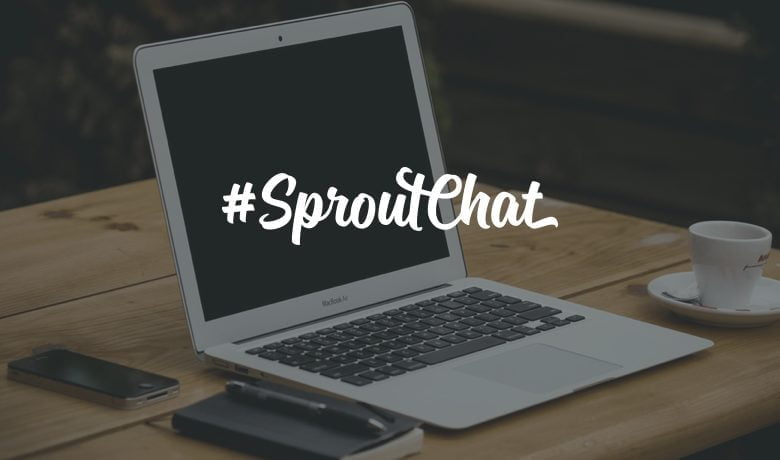You understand the importance of social media monitoring, but beyond keeping an eye on brand mentions how are you taking advantage of monitoring and social listening tools?
For example, Sprout’s Smart Inbox is great for making sure you never miss a mention or brand hashtag so that you’re capitalizing on every social opportunity you can.
In this week’s #SproutChat we talked about the distinction between monitoring and listening, the value of monitoring geolocations and how to use these tools to find influencers for your brand.
Monitoring & Listening Are Different
In social terms, it’s easy to conflate monitoring and listening, but it’s important to understand the difference. Monitoring means looking for brand mentions and taking action in a specific time frame. Listening requires additional tools and helps brands discover patterns in their social community’s conversations.
Think of social listening as a long play that can help brands amp up their social strategy.
A1: Monitoring reacts to messages across your channels. Listening analyzes patterns & trends to use as a basis for strategy #sproutchat
— Brendan Cooper (@SagefrogBrendan) August 2, 2017
A1: Monitoring is all about you, watching your own channels & names listening is for keywords, customers & conversations #SproutChat
— Brandie McCallum (@lttlewys) August 2, 2017
A1. Both are intertwine because you are paying attention to what people are saying about your business and brand #sproutchat
— Cheval John (@chevd80) August 2, 2017
Another thing to keep in mind when listening to social media conversations is to analyze them correctly. #sproutchat
— Christoph Trappe (@CTrappe) August 2, 2017
A1: Listening is like hearing the popcorn pop. Monitoring is like making sure the microwave doesn’t blow up. 💥 #SproutChat https://t.co/e9TaRZrmRq
— Chatterkick (@Chatterkick) August 2, 2017
A1: Monitoring is also keeping track of the digital climate, and listening is engaging when necessary/opportune. #SproutChat
— Paige Doerner (@PaigeDoerner) August 2, 2017
A1. Definitely not! Monitoring is passive & reactive. Listening is proactive & requires understanding of context. #SproutChat
— Jenn Zajac 👩🏻💻 (@jenngetsaround) August 2, 2017
Brick & Mortar Businesses Can Benefit From Monitoring
Geolocations are a rich place to seek out social engagement with your consumers. Take advantage of running a user-generated content campaign or take your social customer service to the next level by monitoring locations in real time.
A2: Brick and mortar businesses are attracting local customers. They need to find and target people in their area. 📍 #SproutChat
— Express Writers (@ExpWriters) August 2, 2017
A2 Track local kws and topics for insight in to your target audience. Interact w/ and educate users who fit your #buyerpersona! #sproutchat
— Mike Mills (@SagefrogMike) August 2, 2017
A2. Great way to spot untagged UGC and engage! #SproutChat pic.twitter.com/R2NVLmg6lC
— Jenn Zajac 👩🏻💻 (@jenngetsaround) August 2, 2017
A2: They can track shopper behavior. Do shoppers have a typical path before walking thru your doors? #SproutChat
— Deren Baker (@deren_baker) August 2, 2017
A2: they can see where they get the best business and where they should build up more brick and mortar shops. #SproutChat
— Molly Nichols (@mnich_pro) August 2, 2017
A2: Monitoring what people say near you is just as important as what they say about you. (1/2) #SproutChat https://t.co/gIvFfTuy1Z
— Alyssa Townsend (@atownx) August 2, 2017
Keep Track of Competitors
Utilizing tools like Twitter lists and brand keywords help keep you informed on your competitor’s presence on social. Stay on top of what’s working for them and learn to adapt your strategy in more strategic ways.
A3: Monthly audits keep us up to date! Slightly intensive but necessary to assess how we’re performing #SproutChat
— Deren Baker (@deren_baker) August 2, 2017
A3b: For Twitter, creating lists is always a great idea to keep up with what others are saying and sharing. #SproutChat
— Express Writers (@ExpWriters) August 2, 2017
A3: Competitor analysis should be ongoing, not just something you check in on every now and again. Make it part of your routine! #SproutChat
— Krista Vogel (@KristaVogel) August 2, 2017
I am obsessed with lists!! Smartest thing ever!! Wish FB hadn’t taken them away! #SproutChat
— Brandie McCallum (@lttlewys) August 2, 2017
A3. Twitter Lists. Monthly/Quarterly Audits. Mainly spotting what content is performing & what is not #SproutChat https://t.co/5GNqMw02oF
— Eddie Garrison (@EddieGarrison) August 2, 2017
Engage Influencers
Thinking of running an influencer program? Start by monitoring relevant hashtags and brand keywords to find your most influential followers. Tap into existing conversations and establish a relationship. Inviting consumers that are already talking about your brand into your social efforts is a natural and effective way to evolve your engagement strategy.
A5: Researching your industry keywords using hashtags can help you figure out the top influencers that can endorse your brand #sproutchat
— Brendan Cooper (@SagefrogBrendan) August 2, 2017
A5 We are all Sprout Chat influencers right now! By using #sproutchat we drive engagement, awareness, and have some fun while we’re at it.
— Mike Mills (@SagefrogMike) August 2, 2017
A5) By searching for common hashtags or keywords and research from there. #SproutChat
— Pinely (@Pinely_io) August 2, 2017
a5 Listen More / Talk Less – Search for references to your company – not just your twitter handle. #sproutchat
— Debi Norton (@BRAVOMedia1) August 2, 2017
A5. Run a query like “Luxury travel blog” then view by People, to see accounts with those KWs in their bio. 🔍 #SproutChat
— Jenn Zajac 👩🏻💻 (@jenngetsaround) August 2, 2017
Tune in next week, Wednesday, August 9 at 2 p.m. CDT, to discuss handling trolls on social. Until then be sure to join our Facebook community to continue the conversation and mingle with folks in the industry.
